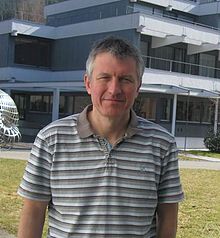General Bayesian updating for complex applications
 Abstract
Abstract
Data sets are increasing in size and modelling environments are becoming more complex. This presents great opportunities for Bayesian statistics but also major challenges, perhaps the greatest of which is the requirement to define the true sampling distribution, or joint likelihood, for the whole data generator $f_0(x)$, regardless of the study objective. So even if the task is inference for a low-dimensional statistic Bayesian analysis is required to model the complete data distribution and, moreover, assume that the model is “true”. In this talk we present a coherent procedure for general Bayesian inference which is based on the use of loss functions to connect information in data to parameters of interest. The updating of a prior belief distribution to a posterior then follows from a decision theoretic foundation involving cumulative loss functions and a requirement for coherency. Importantly, the procedure coincides with Bayesian updating when a true likelihood is known, yet provides coherent subjective inference in much more general settings. We demonstrate the approach on examples including model-free general Bayesian co-clustering of time series
Background
Prof. Chris Holmes moved to Oxford from Imperial College London in February 2004. At Imperial College he studied for his doctorate in Bayesian statistics, investigating novel nonlinear pattern recognition methods. This was followed by a post-doctoral position and then a lectureship at Imperial. Previous to this he worked in industry for a number of years researching in scientific computing, developing techniques for real-time pattern recognition models in defense and SCADA (Supervisory Control and Data Acquisition) systems. His current research is focused on applications and statistical methods development in the genomic sciences and genetic epidemiology. He holds a programme leaders grant in Statistical Genomics from the Medical Research Council.
Research Interests
Bayesian Statistics, Stochastic Simulation, Markov chain Monte Carlo, Pattern Recognition, Spatial Statistics, Statistical Genetics, Statistical Genomics, Genetic Epidemiology.
